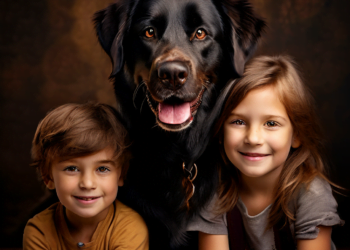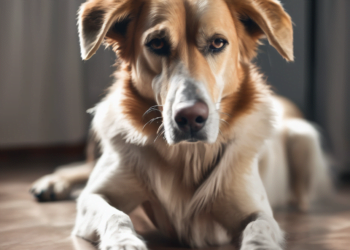Are you considering adding a Boxer to your family, or are you just curious to learn more about this fascinating breed? Look no further! This comprehensive guide will provide you with essential information about Boxers, including their training needs, health considerations, and unique breed characteristics. Whether you’re a seasoned Boxer enthusiast or a first-time owner, this article will equip you with valuable insights to ensure you provide excellent care for your Boxer companion.
Key Takeaways:
- Boxers are a lively and energetic breed that requires regular exercise and mental stimulation.
- Training a Boxer requires consistency, positive reinforcement, and patience to shape their well-rounded temperament.
- Boxers are generally healthy but may be prone to certain medical conditions, so regular health check-ups are important.
- Proper nutrition is crucial for a Boxer’s overall health and well-being, so provide a balanced diet suited to their needs.
- Even for short-coated Boxers, grooming is necessary, including regular brushing, ear cleaning, and dental care.
Understanding the Boxer Breed
When it comes to the Boxer breed, there is much more to them than meets the eye. These captivating dogs have a rich history and unique characteristics that set them apart from other breeds. From their physical appearance to their temperament, there is plenty to learn about this fascinating breed.
Origins and History
The Boxer breed traces its roots back to Germany in the 19th century. Developed from a mix of different breeds, including the extinct Bullenbeisser and the English Bulldog, Boxers were initially bred for hunting purposes. Over the years, they transitioned into versatile working dogs and loyal companions.
Physical Appearance
Boxers have a strong, muscular build, distinctive square-shaped head, and powerful jaw. They have a short coat in various shades, including fawn and brindle. Boxers are known for their expressive dark eyes, floppy ears, and a docked tail, a traditional practice in some countries.
Temperament and Personality Traits
One of the defining characteristics of Boxers is their playful and energetic nature. They have a zest for life and are known to be highly spirited and fun-loving. Boxers are also renowned for their loyalty and devotion to their families. They thrive on human companionship and are known to be great with children, making them an excellent choice for families.
“Boxers are affectionate, intelligent, and protective, making them excellent family pets and loyal guardians.”
Boxers are known for their clownish behavior and constant desire for attention. They are always up for a game of fetch or a long walk in the park. However, they can also be strong-willed and require consistent training and socialization from an early age.
Key Takeaways
- Boxers have a rich history and were initially bred for hunting purposes.
- They have a distinctive square-shaped head, muscular build, and short coat.
- Boxers are known for their playful, energetic, and fun-loving temperament.
- They are loyal and devoted and make excellent family pets.
- Consistent training and socialization are essential for Boxers.
Understanding the Boxer breed’s origins, physical appearance, and temperament will give you a deeper appreciation for this remarkable dog. With the right knowledge and care, you can provide your Boxer a fulfilling and happy life.
Boxer Training Tips
Training a Boxer requires consistency, positive reinforcement, and an understanding of their energetic nature. Boxers are known for their high energy levels and instincts, so tailored training methods are necessary to ensure their success. Below are some effective training tips to help you establish a strong bond with your Boxer and achieve desired behavior outcomes.
Socialization and Obedience Training
Early socialization is crucial for Boxers to develop good manners and positive interactions with people and other animals. Starting from an early age, introduce your Boxer to various environments, sounds, and situations. This will help them become well-rounded and confident dogs.
Basic obedience training is the foundation for a well-behaved Boxer. Teach them commands such as sit, stay, come, and leave. Use positive reinforcement techniques, such as treats, praise, and play, to reward desired behavior. Consistency and repetition are key to successful training.
Channeling Energy and Mental Stimulation
Boxers are energetic and intelligent dogs that require mental and physical stimulation to thrive. Regular exercise is essential to channel their energy positively. Engage in brisk walks, jogging, hiking, or playing fetch to help burn off their excess energy.
Incorporate puzzle toys, interactive games, and obedience training into their daily routine. This will provide mental stimulation and prevent boredom, reducing the likelihood of destructive behavior.
Positive Reinforcement and Consistency
Positive reinforcement is vital in training Boxers. Reward good behavior with treats, praise, and affection. Avoid punishment-based techniques, which can lead to fear or aggression in this sensitive breed.
Consistency is key when training a Boxer. Use the same commands and training techniques consistently to reinforce their understanding. Set clear boundaries and be firm but fair in your expectations.
| Training Tip | Description |
|---|---|
| Title your form fields | Clearly label all form fields to help users understand what information is required. |
| Ensure that your form is responsive and mobile-friendly, as many users will access it from their smartphones. | Instead of generic buttons like “Submit” or “Next,” use descriptive labels that tell the user what action will be taken. |
| Provide clear instructions | Explain what information is needed and how it should be entered or formatted. |
| Optimize for mobile | Ensure your form is responsive and mobile-friendly, as many users will access it from their smartphones. |
Seek Professional Help
If you’re having trouble training your Boxer or need guidance with specific behavior issues, don’t hesitate to seek professional help. An experienced dog trainer or behaviorist can provide personalized advice and support to help you and your Boxer succeed.
Remember, training a Boxer takes time, patience, and consistency. With proper training and guidance, you’ll develop a strong bond with your Boxer and enjoy a well-behaved, happy, and balanced canine companion.
Maintaining Boxer Health
Boxers are generally a healthy breed, but they are predisposed to certain health issues. Boxer owners need to be aware of these common health concerns and take proactive measures to maintain their Boxer’s overall well-being. Here, we will discuss some of the most prevalent health issues in Boxers and provide essential tips for their care.
Common Health Concerns in Boxers
Boxers are susceptible to specific health conditions affecting their quality of life. Some of these health concerns include:
- Heart disease
- Hip dysplasia
- Thyroid disorders
- Cancer
- Allergies and skin conditions
- Gastrointestinal issues
Regular veterinary check-ups are crucial for monitoring your Boxer’s health and catching potential issues early on. Working closely with your veterinarian can help ensure your Boxer receives appropriate preventive care and prompt treatment if necessary.
Tips for Boxer Health and Care
In addition to regular veterinary care, there are several steps you can take to promote your Boxer’s health and provide the best possible care:
- Nutrition: Feed your Boxer a balanced diet appropriate for their age, size, and activity level. Consult your veterinarian to determine the right type and amount of food for your Boxer.
- Exercise: Boxers are active and require regular exercise to stay fit and mentally stimulated. Provide them daily physical activity, such as brisk walks or playtime in a fenced yard.
- Grooming: Despite their short coat, Boxers require regular grooming. Brush their coat to remove loose hair and keep their skin healthy. Trim their nails regularly and clean their ears to prevent infections.
- Dental care: Dental hygiene is essential for Boxers. Brush their teeth regularly with appropriate dental chews or toys to promote oral health.
- Environmental safety: Ensure your home and yard are safe for your Boxer. Remove any hazardous plants, chemicals, or objects that could pose a risk to their health.
By following these tips and being proactive in their care, you can help maintain your Boxer’s health and ensure they lead a happy and fulfilling life.
| Health concern | Description | Prevention/Maintenance |
|---|---|---|
| Heart disease | Boxers are predisposed to certain heart conditions, such as cardiomyopathy. This can lead to heart failure and other serious complications. | Regular check-ups, heart-healthy diet, exercise, early intervention |
| Hip dysplasia | Hip dysplasia is a common condition in Boxers where the hip joint doesn’t develop properly. It can cause pain, lameness, and arthritis. | Regular exercise, maintaining healthy weight, joint supplements |
| Thyroid disorders | Boxers can develop hypothyroidism or hyperthyroidism, which can affect their metabolism and overall well-being. | Regular thyroid testing, appropriate medication if required |
| Cancer | Boxers are prone to certain types of cancers, including lymphoma and mast cell tumors. | Regular check-ups, early detection, cancer screenings |
| Allergies and skin conditions | Boxers can be prone to allergies and skin conditions, which can cause itching, rash, and discomfort. | Regular grooming, hypoallergenic diets if necessary, allergy testing if required |
| Gastrointestinal issues | Boxers can experience digestive problems like bloating, gastric torsion, and inflammatory bowel disease. | Feed smaller, frequent meals, avoid rapid eating, provide a balanced diet |
Boxer Exercise Needs
Boxers are known for their high energy levels and playful nature. Regular exercise is crucial to keep them physically fit and mentally stimulated. Lack of exercise can lead to behavioral issues and weight gain in Boxers. In this section, we will explore the exercise needs of Boxers and provide suggestions for engaging activities to keep them happy and healthy.
Understanding the Boxer’s Energy Level
Boxers are a breed that thrives on physical activity. They have a natural inclination for playfulness, running, and jumping. It is important to note that each Boxer may have different exercise requirements based on age, health, and individual energy levels. It’s essential to consult with your veterinarian to determine the right exercise routine for your Boxer.
Recommended Boxer Exercise Activities
Here are some exercise activities that can help fulfill the exercise needs of Boxers:
- Running and Jogging: Boxers are excellent running partners. Take them for regular runs and jogs to provide them with the necessary cardiovascular exercise. Make sure to start slow and gradually increase the intensity.
- Interactive Playtime: Engage in interactive play sessions with your Boxer using toys such as balls, frisbees, or ropes. This will not only provide them with physical exercise but also mental stimulation.
- Agility Training: Boxers enjoy agility training as it challenges their physical abilities while keeping them mentally engaged. Set up obstacle courses or enroll them in agility classes to hone their skills.
- Hiking and Outdoor Adventures: Take your Boxer on hikes or explore nature trails together. The change in environment and exploration will keep them mentally stimulated and physically active.
Remember, consistency is key when it comes to exercising your Boxer. Aim for at least 30 minutes to an hour of physical activity each day, depending on your Boxer’s age and health. Monitoring their weight and adjusting their exercise routine accordingly is important to maintain their overall well-being. By providing your Boxer with regular exercise, you can help prevent obesity, promote their muscle development, and enhance their overall happiness and longevity.
Introducing a Boxer to Your Family
If you’re considering adding a Boxer to your family, it’s important to ensure a smooth and successful integration into your household. Boxers are known for their affectionate and loyal nature, making them excellent family pets. Follow these guidelines to help your Boxer feel at home and establish a harmonious relationship:
Socialization
Socializing your Boxer from an early age is crucial for their development and well-being. Expose them to various environments, people, and animals to promote their confidence and friendly disposition. Enroll them in puppy socialization classes and engage in positive experiences, such as visits to parks, communal areas, and interactions with other well-behaved dogs.
Proper Integration with Other Pets
If you already have pets at home, introducing your Boxer to them requires a gradual and controlled approach. Start by providing separate spaces for each pet and gradually allow supervised interactions. Pay attention to their body language and behavior to ensure a smooth introduction. Consult with a professional trainer if necessary.
Establish a Routine
Boxers thrive on structure and routine, so establish a regular schedule for feeding, exercise, and playtime. Consistency will help them feel secure and well-adjusted in their new environment.
Provide a Comfortable Space
Designate a cozy area in your home where your Boxer can retreat to for rest and relaxation. This space should have a comfortable bed, toys, and access to fresh water. Providing a sense of security will help them settle into their new surroundings.
Patience and Positive Reinforcement
Be patient with your Boxer as they adapt to their new home. Positive reinforcement training techniques, such as rewards and praise, will help them learn and understand house rules. Consistency and kindness are essential in building a strong bond with your Boxer.
Remember, every Boxer is unique, and the adjustment period may vary. Some Boxers may settle in quickly, while others may take more time. With love, patience, and proper guidance, your Boxer will become a beloved member of your family.
Rescue Boxer Adoption
Adopting a rescue Boxer can be a truly rewarding experience. Not only do you provide a second chance at life for a Boxer in need, but you also gain a loving companion who will bring joy and happiness to your home. In this section, we will discuss the process of rescuing a Boxer, the benefits of adoption, and provide useful information for those interested in giving a forever home to a Boxer in need.
The Process of Rescuing a Boxer
When considering a rescue Boxer adoption, there are several essential steps to follow. These typically include:
- Researching and contacting reputable Boxer rescue organizations in your area
- Filling out an adoption application and undergoing a screening process to ensure the suitability of your home environment for a rescue Boxer
- Meeting potential Boxers and interacting with them to assess compatibility
- Completing the adoption paperwork and paying an adoption fee
- Providing a safe and loving home for your new furry friend
By following these steps and working closely with the rescue organization, you can find the perfect Boxer companion that will enrich your life and become a cherished member of your family.
The Benefits of Adoption
There are numerous benefits to adopting a rescue Boxer:
- Saving a life: By adopting a rescue Boxer, you are offering a second chance to a dog in need and providing them with a loving home.
- Bypassing puppy stage: Rescue Boxers are typically older dogs, which means they have passed the demanding puppy stage. This can be advantageous for those who prefer a more settled and less energetic companion.
- Less training needed: Many rescue Boxers have already received some basic training and socialization, which can make the transition into your home smoother and less demanding.
- Supporting a cause: By adopting, you not only save an individual dog, but you also contribute to the mission of the rescue organization in helping more Boxers in need.
- Bonding and companionship: Rescue Boxers can form incredibly strong bonds with their new owners and provide unwavering loyalty and companionship.
By adopting a rescue Boxer, you not only change the life of a deserving dog but also enhance your own life with the love and devotion of a grateful companion.
Useful Information for Prospective Adopters
Before embarking on a rescue Boxer adoption, it’s essential to educate yourself about the breed and understand their specific needs and requirements. Here are some key considerations:
Boxers are known for their energetic nature and require regular exercise to keep them physically and mentally stimulated. Ensure that you have the time and commitment to provide them with the activity they need.
Boxers are social animals and thrive on human companionship. If you work long hours or frequently travel, consider whether you can provide the necessary attention and company they require.
As with any pet, there are expenses involved in caring for a rescue Boxer, including veterinary bills, food, grooming, and other essentials. Be prepared to budget for these costs and provide your Boxer with the care they deserve.
By understanding and considering these factors, you can make an informed decision about adopting a rescue Boxer and ensure that both you and your new furry friend have a beautiful life together.
| Benefits of Rescue Boxer Adoption | Considerations for Prospective Adopters |
|---|---|
| Saving a life | Time and commitment for exercise |
| Bypassing puppy stage | Providing sufficient companionship |
| Less training needed | Financial responsibilities |
| Supporting a cause | – |
| Bonding and companionship | – |
Boxer Nutrition Requirements
Proper nutrition plays a crucial role in maintaining the health and well-being of your Boxer. To ensure your furry friend remains healthy and thriving, it’s essential to meet their specific nutritional needs. In this section, we will explore the key factors to consider when it comes to feeding your Boxer, including recommended diets, portion control, and feeding schedules.
The Importance of a Balanced Diet
A balanced diet is essential for the overall health of your Boxer. Providing them with a combination of high-quality proteins, carbohydrates, healthy fats, vitamins, and minerals ensures they receive the necessary nutrients to support their active lifestyle and maintain optimal health.
Recommended Diets
When choosing a diet for your Boxer, it’s important to consider their age, activity level, and any specific health concerns. Consult with your veterinarian to determine the most suitable diet for your pet. Generally, high-quality commercial dog foods that list real meat as the primary ingredient are a good choice for Boxers. Avoid foods that contain excessive fillers, artificial additives, or low-quality by-products.
Portion Control
Portion control is essential to prevent overfeeding or underfeeding your Boxer. Feeding guidelines provided by the food manufacturer serve as a starting point, but keep in mind that individual Boxers may have different metabolism rates and activity levels. Monitor your Boxer’s body condition and adjust their portions accordingly to maintain a healthy weight. Regularly weigh your Boxer and consult with your veterinarian to ensure they are receiving the appropriate amount of food.
Feeding Schedule
Establishing a regular feeding schedule helps maintain your Boxer’s digestive health and prevents unnecessary snacking throughout the day. Most adult Boxers do well with two meals a day, while puppies may require three meals until they reach a certain age. Aim to feed your Boxer at the same times each day to establish a routine that works best for both you and your pet.
Note: Always provide fresh water for your Boxer and ensure their feeding area is clean and hygienic.
Vitamin and Mineral Supplements
In most cases, a well-balanced diet provides all the necessary vitamins and minerals for your Boxer. However, if you have any concerns about deficiencies or specific health conditions, consult with your veterinarian to determine if additional supplements are necessary. Avoid giving your Boxer any supplements without professional guidance, as over-supplementation can be harmful.
Grooming Your Boxer
Despite their short coat, Boxers still require regular grooming to maintain their cleanliness and overall health. Here are some essential grooming tips and advice to keep your Boxer looking and feeling their best.
Coat Care
While Boxers have a short coat, they still shed moderately. Regular brushing helps remove loose hair, reduces shedding, and keeps their coat shiny. Using a grooming mitt or a soft-bristle brush can effectively remove dead hair and distribute natural oils.
Pro Tip: Brush your Boxer’s coat at least once a week to keep it looking healthy and to prevent matting.
Nail Care
Trimming your Boxer’s nails is an important part of their grooming routine. Long nails can cause discomfort and affect their gait. Use a proper pet nail trimmer and trim the tips of the nails, taking care not to cut into the quick, which contains blood vessels and nerves.
Pro Tip: If you’re not comfortable trimming your Boxer’s nails, consult a professional groomer or veterinarian for assistance.
Ear Care
Boxers are prone to ear infections due to their naturally floppy ears. Regularly check their ears for signs of redness, swelling, or a foul odor. Clean the outer ear with a veterinarian-recommended ear cleaner using a clean cotton ball or pad. Avoid inserting anything into the ear canal.
Pro Tip: Consult your veterinarian if you notice any signs of ear infection or excessive wax buildup in your Boxer’s ears.
Dental Hygiene
To ensure good dental health, brush your Boxer’s teeth regularly using a dog-friendly toothbrush and toothpaste. This helps remove plaque and prevent gum disease. Also, provide dental chews or toys that promote dental hygiene.
Pro Tip: Start the dental care routine when your Boxer is still a puppy to get them comfortable with the process.
| Grooming Task | Frequency |
|---|---|
| Brushing the coat | At least once a week |
| Trimming nails | Every 4-6 weeks |
| Cleaning the ears | Weekly |
| Brushing teeth | Daily |
Conclusion
In conclusion, Boxers are a captivating breed known for their vibrant temperament, robust health, and loyal nature. Whether you’re considering bringing home a Boxer puppy or already have a Boxer dog as part of your family, understanding their specific needs and requirements is essential for their overall well-being and happiness.
Boxers thrive in an environment where they receive proper training, exercise, and nutrition. Their high energy levels and natural instincts make them an ideal companion for an active individual or family. Regular exercise and mental stimulation are crucial for channeling their energy in a positive and constructive manner.
It is also important to consider Boxer health conditions such as hip dysplasia and heart problems. Regular veterinary check-ups, appropriate vaccinations, and a balanced diet tailored to their nutritional needs will help keep them in optimal health and prevent potential medical issues.
With the information provided in this article, you are now equipped with the knowledge and understanding to be a responsible Boxer owner. From training tips to health considerations, grooming needs, and introducing a Boxer to your family, embracing the joy and unique qualities of this remarkable breed is within your reach.
FAQ
Are Boxers good family pets?
Yes, Boxers are known for their love and loyalty towards their families. They are excellent family pets and get along well with children, making them a popular choice for families.
How much exercise do Boxers require?
Boxers are a highly energetic breed and require at least an hour of exercise every day. Regular physical activity, such as brisk walks, jogging, or play sessions, is essential to keep them happy and healthy.
Do Boxers drool a lot?
While not all Boxers drool excessively, some individuals may drool more than others. This drooling can be attributed to their loose jowls and is typically seen after eating or drinking water.
How long do Boxers live?
On average, Boxers have a lifespan of 9 to 12 years. With proper care, a balanced diet, regular exercise, and routine medical check-ups, Boxers can live long and healthy lives.
Are Boxers good with other pets?
Boxers can get along well with other pets when properly socialized and introduced. However, it’s important to remember that individual temperaments may vary, and some Boxers may have a higher prey drive towards smaller animals.
Do Boxers require a lot of grooming?
Although Boxers have a short coat, they still require regular grooming. Weekly brushing helps remove loose hair and keeps their coat shiny. Additionally, regular nail trims, ear cleaning, and dental hygiene are essential parts of their grooming routine.
Are Boxers good guard dogs?
Boxers are naturally protective and instinctively cautious of strangers. While they have the potential to be good guard dogs, they are more often known for their friendly and sociable nature. Early socialization and proper training are key to nurturing their natural protective instincts.
Can Boxers be left alone for long periods?
Boxers thrive on human companionship and can become anxious or bored when left alone for extended periods. It’s recommended that they have regular human interaction and plenty of mental and physical stimulation to prevent behavioral issues.
Are Boxers difficult to train?
Boxers are intelligent dogs and generally responsive to training. However, they can be strong-willed and may require consistent, positive reinforcement techniques. Early puppy socialization and obedience training are crucial for setting them up for success.
Should I consider adopting a rescue Boxer?
Adopting a rescue Boxer can be a wonderful choice. There are many Boxers in rescue organizations and shelters who are in need of loving homes. It’s important to work closely with a reputable rescue organization to find a Boxer that best fits your lifestyle and ensure a successful adoption process.










